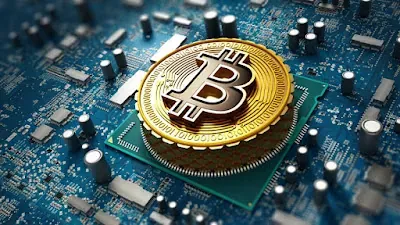Cryptocurrency mining is painstaking, costly, and only sporadically rewarding. Nonetheless, mining has a magnetic appeal for many investors interested in cryptocurrency because of the fact that miners are rewarded for their work with crypto tokens. This may be because entrepreneurial types see mining as pennies from heaven, like California gold prospectors in 1849. And if you are technologically inclined, why not do it?
• By mining, you can earn cryptocurrency without having to put down money for it.
•
• Bitcoin miners receive Bitcoin as a reward for completing "blocks" of verified transactions which are added to the blockchain.
•
• Mining rewards are paid to the miner who discovers a solution to a complex hashing puzzle first, and the probability that a participant will be the one to discover the solution is related to the portion of the total mining power on the network.
•
• You need either a GPU (graphics processing unit) or an application-specific integrated circuit (ASIC) in order to set up a mining rig.
However, before you invest the time and equipment, read this explainer to see whether mining is really for you. We will focus primarily on Bitcoin (throughout, we'll use "Bitcoin" when referring to the network or the cryptocurrency as a concept, and "bitcoin" when we're referring to a quantity of individual tokens).
The primary draw for many mining is the prospect of being rewarded with Bitcoin. That said, you certainly don't have to be a miner to own cryptocurrency tokens. You can also buy cryptocurrencies using fiat currency; you can trade it on an exchange like Bitstamp using another crypto (as an example, using Ethereum or NEO to buy Bitcoin); you even can earn it by shopping, publishing blog posts on platforms that pay users in cryptocurrency, or even set up interest-earning crypto accounts. An example of a crypto blog platform is Steemit, which is kind of like Medium except that users can reward bloggers by paying them in a proprietary cryptocurrency called STEEM. STEEM can then be traded elsewhere for Bitcoin.
The Bitcoin reward that miners receive is an incentive that motivates people to assist in the primary purpose of mining: to legitimize and monitor Bitcoin transactions, ensuring their validity. Because these responsibilities are spread among many users all over the world, Bitcoin is a "decentralized" cryptocurrency, or one that does not rely on any central authority like a central bank or government to oversee its regulation.


Post a Comment